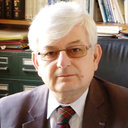Mesenchymal Stem Cells Derived Extracellular Vesicles as a New Cell Free Biological Regenerative Therapy
Author(s): Christian Jorgensen
This review focus on the therapeutically potential of microvesicles. Extracellular vesicles include exosomes, microvesicles, microparticles, exosomes and apoptotic bodies processed by mesenchymal cells and/or immune cells. They are characterized by their size as well as protein expression as tetraspanins, HSP90, ALIX, TSG101 and Clathrin. These exosomes are actively secreted a long distance from the parental cell. They are highly active through the transportation as “cargo” of nucleotide materials such as micro RNAs, non-coding RNAs, messenger RNAs as well as proteins which can then be delivered to target cells. Several preclinical studies have shown the benefit of vesicles derived from mesenchymal cells due to their regenerative capacity. EV derived from MSC has been developed in ischemic heart disease, liver or kidney damage as well as in neurodegenerative damage or autoimmune diseases. Clinical trials have been conducted in infectious disease in particular lung inflammation related to SARS-Cov2. However, developing MSC derived EV, despite the advantage of a cell free product, there is still some important steps in terms of biological characterization, mode of action, access to large scale production requested for a clinical application.


 Impact Factor: * 3.0
Impact Factor: * 3.0 Acceptance Rate: 76.32%
Acceptance Rate: 76.32%  Time to first decision: 10.4 days
Time to first decision: 10.4 days  Time from article received to acceptance: 2-3 weeks
Time from article received to acceptance: 2-3 weeks 
